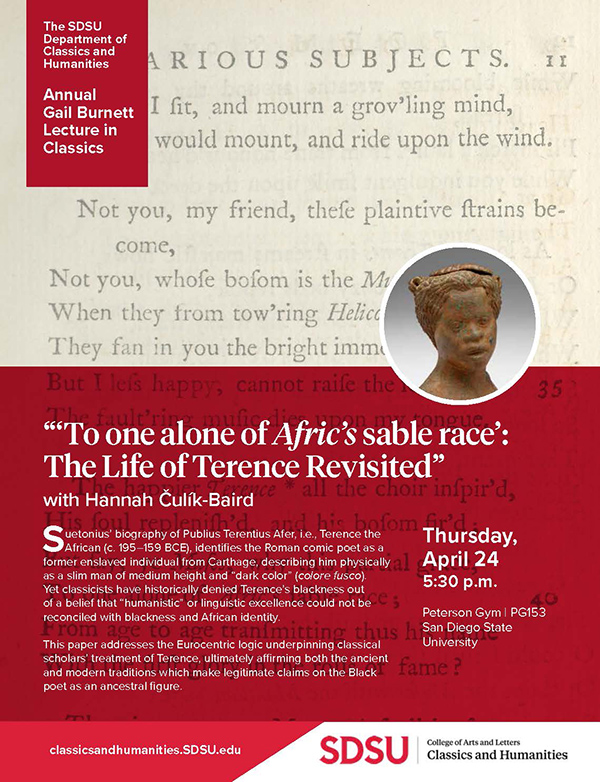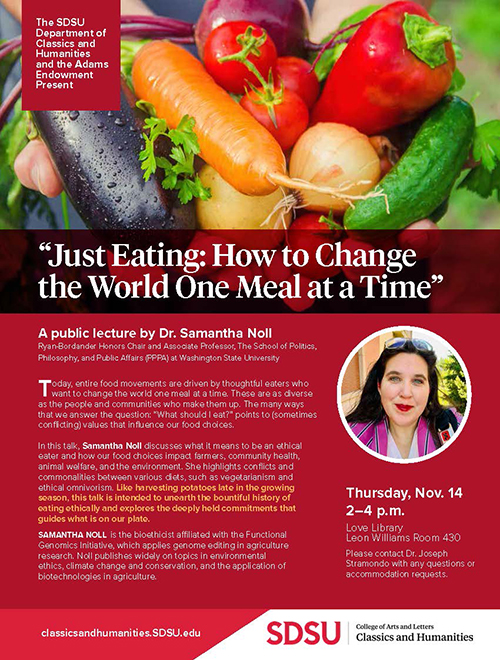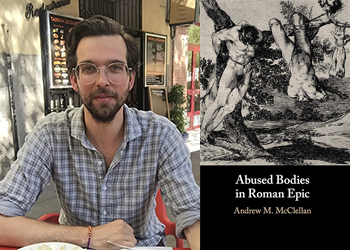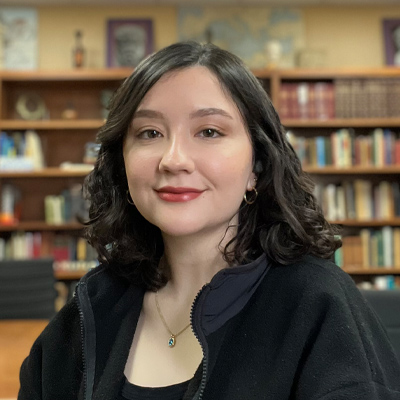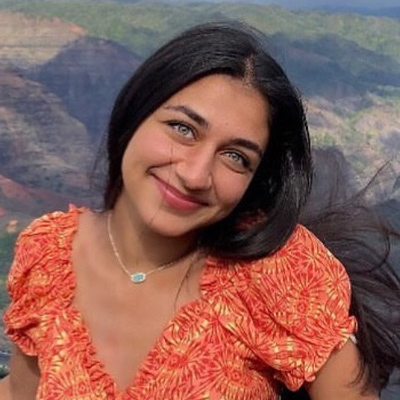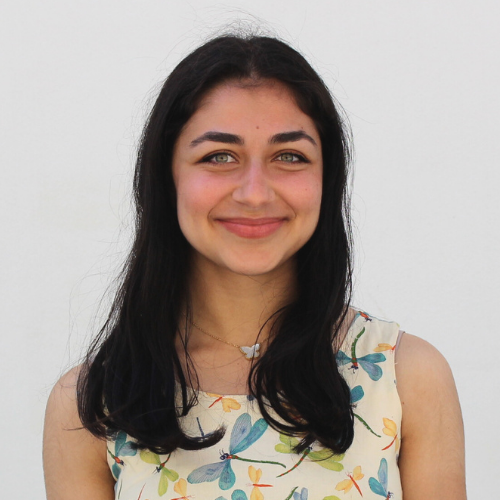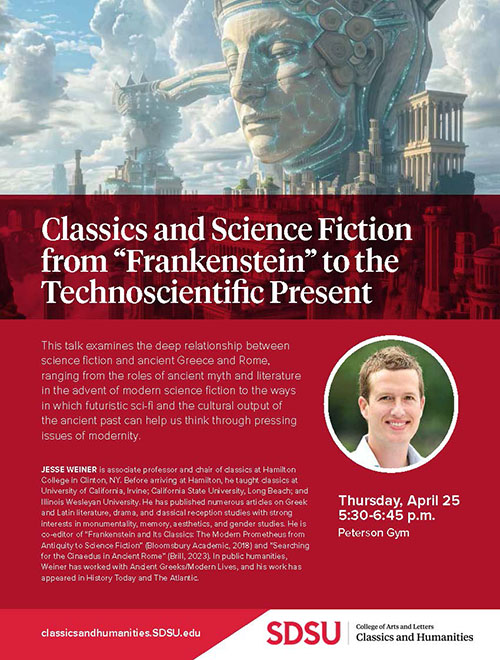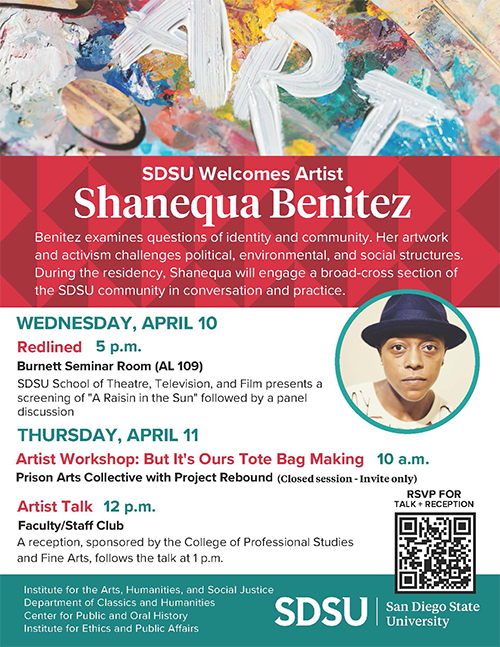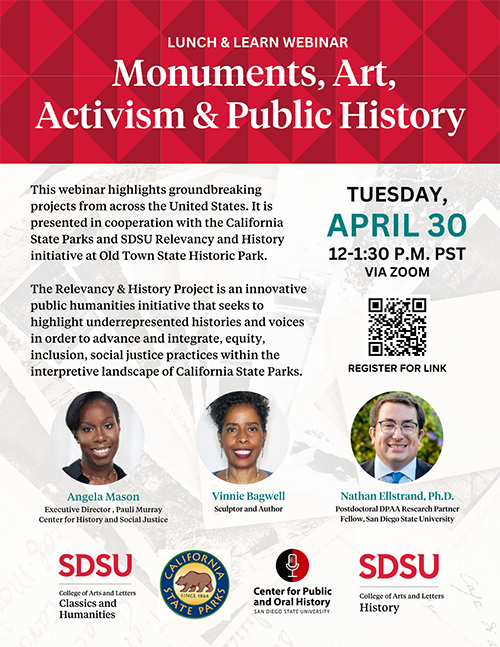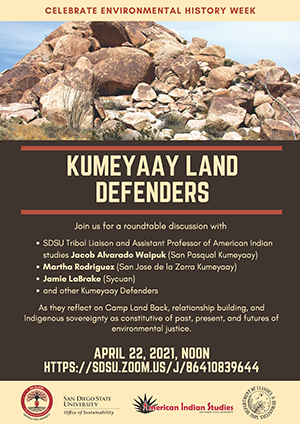
News and Events
Upcoming & Recent Events
Annual Gail Burnett Lecture in Classics: “‘To one alone of Afric’s sable race’: The Life of Terence Revisited”
Thursday, April 24
5:30 p.m.
Peterson Gym | PG153
with Hannah Čulík-Baird
Suetonius’ biography of Publius Terentius Afer, i.e., Terence the African (c. 195–159 BCE), identifies the Roman comic poet as a former enslaved individual from Carthage, describing him physically as a slim man of medium height and “dark color” (colore fusco). Yet classicists have historically denied Terence’s blackness out of a belief that “humanistic” or linguistic excellence could not be reconciled with blackness and African identity.
This paper addresses the Eurocentric logic underpinning classical scholars’ treatment of Terence, ultimately affirming both the ancient and modern traditions which make legitimate claims on the Black poet as an ancestral figure.
“Just Eating: How to Change the World One Meal at a Time”
Thursday, Nov. 14
2–4 p.m.
Love Library, Leon Williams Room 430
A public lecture by Dr. Samantha Noll, Ryan-Bordander Honors Chair and Associate Professor, The School of Politics, Philosophy, and Public Affairs (PPPA) at Washington State University
Today, entire food movements are driven by thoughtful eaters who want to change the world one meal at a time. These are as diverse as the people and communities who make them up. The many ways that we answer the question: “What should I eat?” points to (sometimes conflicting) values that influence our food choices.
In this talk, Samantha Noll discusses what it means to be an ethical eater and how our food choices impact farmers, community health, animal welfare, and the environment. She highlights conflicts and commonalities between various diets, such as vegetarianism and ethical omnivorism. Like harvesting potatoes late in the growing season, this talk is intended to unearth the bountiful history of eating ethically and explores the deeply held commitments that guides what is on our plate.
Samantha Noll is the bioethicist affiliated with the Functional Genomics Initiative, which applies genome editing in agriculture research. Noll publishes widely on topics in environmental ethics, climate change and conservation, and the application of biotechnologies in agriculture.
Please contact Dr. Joseph Stramondo with any questions or accommodation requests.
Sponsored by the Department of Classics and Humanities and the Adams Endowment
The Latest News
Meet Dr. Andrew McClellan: the professor interested in digging beneath the surface of violence
Dr. Andrew McClellan teaches classics and classical languages at SDSU. His work focuses on the grotesque and lies behind the scenes at the roots of violence
By Arianna Hull
Professor Andrew McClellan, Ph.D., was miming eyeballs being removed from his head. The windowless soul is swimming hard. This unfortunate oyster diver was diving for his lost eyeballs.
McClellan was miming a jab by one character of Homer’s “The Iliad” as he killed another. This scene might be gruesome for the average reader; however, McClellan teaches it with a smile on his face. Gore is McClellan’s specialty, and this scene is one of his favorites.
“All of my favorite things are about mortality and death because they are something we all get, everything comes back to it,” McClellan said.
Read the full story on the Daily Aztec.
From the Archives
Congratulations to our Outstanding Graduating Seniors and their Most Influential Faculty Member
Classics
Andrea Tarabay Ceballos
Faculty: Joseph A. Smith
Humanities
Darya Ardehali
Faculty: Joseph A. Smith
SDSU Mundt Peace Scholars Engage in Humanitarian Work in South Africa
Students made impacts during their eight-week service-learning internships in Cape Town.
Last summer humanities major, Darya Ardehali, was one of eight SDSU students who spent eight weeks with various organizations working to help solve some of South Africa’s most pressing issues—a transformative event in her life.
Read the full story on SDSU NewsCenter.
Humanities major Da Quanisha “Day” Parks won a Diversity, Inclusion, and Social Justice research award for her presentation “#EnvironmentalJustice.Now” at this year’s SDSU Student Symposium. Her faculty mentor was Professor Kishauna Soljour. Congratulations Day!
The Title of the Presentation is: #EnvironmentalJustice.Now
A bit of context: This research and digital media project began in Kishauna Soljours fall course: HUM 580: Social Movement, Media and Justice.
Abstract Excerpt: The dynamic relationship between social justice movements and social media has had a profound impact on society and political systems. My project #EnvironmentalJustice.Now recognizes the human right to clean air and water. It seeks to raise awareness of environmental injustices locally and nationally. Inspired by the Environmental Justice For All Act (first introduced to Congress March 18th, 2021), this proposed legislation provided a federal definition for environmental justice and engaged local instances of environmental racism. Historically, communities impacted by environmental racism have been excluded from political debates and policies that affect their daily lives. My research proposes that solutions must be transformative rather than reactionary.
I developed a social media campaign to promote initiatives, information and petitions advocating for environmental justice. Focusing specifically in San Diego, #Environmental Justice.Now examines the results of environmental racism in Barrio Logan. This community is cited by the United States Environmental Protection Agency as more at risk of respiratory illness due to diesel truck pollution. Yet, companies like companies like Mitsubishi Cement Corporation continue to appeal to build within the neighboring community. Using a mixed methods approach, this social media campaign supported the mission of the Environmental Health Coalition of San Diego by conducting an interview with a local resident and activist in support of the Environmental Justice For All Act, providing bi-weekly updates for the community and promoting offline engagement by attending and advertising in-person community engagements. To quantify the project’s impact, social media analytics were used to track engagement and test SMART goals. #Environmental Justice.Now exemplifies the role that social media can have as a model tool for social justice activism.
In 2019 the Royal Ontario Museum (ROM) sent team members Risa Levitt, Myroslav Shkrandrij, Anzhelika Vengrus, and Daniela Rupolo traveled to Ukraine to interview its people on their perspectives of identity and culture.
In this authentic and powerful original series, interviewees reflect upon their own understandings of collective identity, and the experiences that impact their uncertain future.
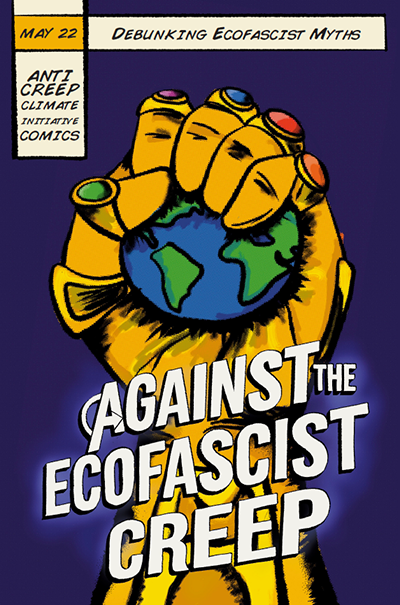
The cover of Against the Ecofascist Creep, designed by Melody Keenan.
Check out the new web zine and teaching resource, Against the Ecofascist Creep. The zine exposes and debunks six "everyday ecofascist" myths.
This cross-disciplinary resource is the work of
- April Anson (SDSU),
- Cassie Galentine (University of Oregon),
- Shane Hall (Salisbury University),
- Alex Menrisky (University of Connecticut), and
- Bruno Seraphin (Cornell University).
And features the graphic design brilliance of SDSU grad student Melody Keenan.
The full zine is available at the Association for the Study of Literature and Environment’s (ASLE) Teaching Resources Database.
Congratulations to our outstanding graduating senior, Aaron Karl P. Garcia. Aaron is a humanities major and has chosen Professor Risa Levitt as their most influential faculty.
Congratulations to Andrew McClellan who had two essays published this summer:
Congratulations to Our Outstanding Graduating Seniors
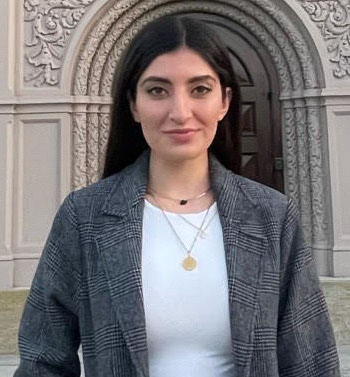
Roda Saoor
Double Major: Humanities and Philosophy
Most influential faculty member: Dr. Michael Caldwell

Steven Carter Adcock
Major: Classics with Emphasis in Humanities
Most influential faculty member: Dr. Joseph Andrew Smith
Congratulations to Assistant Professor of Public Humanities, Dr. April Anson, who was named scholar of the month by The Association for Literature.
Congratulations to our FOC Schuch Post-Doctoral Fellow, David Wallace Hare on the following new publications: Bears as Benefactors? Bear Veneration as Apicultural Risk Management in Roman Spain in the Journal for the Study of Religion, Nature and Culture, 14(3), 324–350 and “Pigs in the City, Bees on the Roof: Intraurban Animal Husbandry and Butchery in Roman Spain,” with K. Tardio, in Divergent Economies in the Roman World: Holistic Views on Habitual and Aberrant Practices, ca. 300 BC–AD 300, Palgrave Studies in Ancient Economies, edited by D. Van Limbergen, D. Taelman, and A. Hoffelinck, Palgrave Macmillan: London, forthcoming.
A Statement of Solidarity with Black Lives Matter and Against Anti-Blackness
SDSU’s College of Arts and Letters stands in solidarity with our Black communities. We denounce racism in any form and violence against Black people, and we stand firm in our belief that Black lives matter. As a community of university faculty and staff, it is our duty to actively support and advocate for solutions to systemic racism across our nation, the world, and our campus. Read the full statement.
Congratulations to Andrew McClellan on his forthcoming chapter in the book, Latin Poetry and its Reception: Essays for Susanna Braund, ed. C.W. Marshall: chapter title: "Mens Humilis vs Superbia in Prudentius' Psychomachia."
New position
Please join us in congratulating our FOC Schuch Post Doctoral Fellow, Danielle Smotherman-Bennett, who has accepted an appointment as Curatorial Associate working with the Ancient Mediterranean art at the Menil Collection -- a collection of approximately 17,000 paintings, sculptures, prints, drawings, photographs and rare books in Houston, Texas. In this position, she will be researching and cataloging the ancient objects in the collection, assisting with exhibition plans, and providing administrative support related to the collection.
Jazz Bastard Podcast featured on All About Jazz
The Jazz Bastard Podcast recently featured on All About Jazz, is the brainchild of Dr. Michael Caldwell and Dr. Patrick Burnette. The podcast has amazingly totaled over 200 hours of content since its debut in late 2012. Learn more about the podcast by reading the full interview with Mike and Pat.
Article Coming Soon
Please join us in congratulating Dr. Danielle Smotherman Bennett, our Friends of Classics and Barbara Schuch Endowed Postdoctoral Fellow, whose article, “Targeted Advertising for Women in Athenian Vase-Painting of the Fifth Century BCE,” will be published in a special volume of the peer-reviewed journal Arts, Ancient Mediterranean Painting (Vol. 1)
Award for Teaching Excellence
Congratulations to Dr. Michael Caldwell who has been awarded this year’s College of Arts and Letters Excellence in Teaching Lecturer award! He will be recognized at the CAL commencement on May 17, 3:00 p.m and his name and bio will appear on CAL's website during the next academic year.
New Book
Please join us in congratulating our Stepsay Post-Doctoral Fellow, Dr. Andrew McClellan, whose book, Abused Bodies in Roman Epic, has been published by Cambridge University Press.
Article Accepted
Congratulations to Dr. Raechel Dumas whose article “Viral Affects and Economies of Desire in Hirotaka Tobi’s ‘Autogenic Dreaming,'" has been accepted for publication in Extrapolation, a leading journal in critical speculative fiction studies.
New Course
A new Religious Studies/Humanities class shows students differing concepts of evil through the ages, and then challenges them to do something about it. The course, Understanding Evil (Religious Studies/Humanities 411), was featured on SDSU NewsCenter and is taught this semester by Dr. Angela Feres. Read the article.
Daily Aztec Feature
Our Friends of Classics and Barbara Schuch Endowed Postdoctoral Fellow in Classics and Digital Humanities, Dr. Danielle Smotherman Bennett, was featured in the recent article "3D Greek digital photographic library allows researchers to piece together remnants of the past" for the Daily Aztec. Read the article.
Articles Soon to be Published
Please join us in congratulating our very own Dr. Raechel Dumas whose articles: “Atsumenia: Strategic Accumulation and Networks of Desire in Collection-Based Smartphone Games” in The Journal of Popular Culture and "'It is Happening Again': Traumatic Memory, Affective Renewal, and Deferred Resolution in Twin Peaks: The Return" in Quarterly Review of Film and Video, have both been accepted for publication.
National Translation Competition Winner
Congratulations to Classics major Ryan Shue who placed first in Intermediate Latin at a national translation competition sponsored by Eta Sigma Phi, the national honors society for Classical Studies.
Dead Sea Scrolls Exhibit
The Dead Sea Scrolls exhibition at the Denver Museum of Nature and Science closed on September 4. Dr. Risa Levitt, chair of the Classics and Humanities and Religious Studies and director of the Jewish Studies Program, curated the exhibit.
The exhibition has been traveling in North America since 2010 and has had over one million visitors. Denver was the seventh showing for the scrolls and included two never before seen scrolls. Over 250,000 people visited the exhibition in Denver, which sold out 75% of the days it was open.
View photos from the exhibit (courtesy of the Denver Museum of Nature and Science). Read news stories about the exhibit: 5280 Denver’s Mile High Magazine | 303 Magazine | Haaretz.
New Book
Congratulations to Dr. Raechel Dumas, whose book, The Monstrous-Feminine in Contemporary Japanese Popular Culture, will be published by Palgrave Macmillan later this year. The book explores the monstrous-feminine in Japanese popular culture, produced from the late years of the 1980s through to the new millennium.Dr. Dumas examines the role of female monsters in selected works of fiction, manga, film, and video games, offering a trans-genre, trans-media analysis of this enduring trope. It focuses on several iterations of the monstrous-feminine in contemporary Japan: the self-replicating shōjo in horror, monstrous mothers in science fiction, female ghosts and suburban hauntings in cinema, female monsters and public violence in survival horror games, and the rebellious female body in mytho-fiction. Situating the titles examined here amid discourses of crisis that have materialized in contemporary Japan, Dumas illuminates the ambivalent pleasure of the monstrous-feminine as a trope that both articulates anxieties centered on shifting configurations of subjectivity and nationhood, and elaborates novel possibilities for identity negotiation and social formation in a period marked by dramatic change.
Classics and Science Fiction from “Frankenstein” to the Technoscientific Present
Thursday, April 25
5:30-6:45 p.m.
Peterson Gym
This talk examines the deep relationship between science fiction and ancient Greece and Rome, ranging from the roles of ancient myth and literature in the advent of modern science fiction to the ways in which futuristic sci-fi and the cultural output of the ancient past can help us think through pressing issues of modernity.
Jesse Weiner is associate professor and chair of classics at Hamilton College in Clinton, NY. Before arriving at Hamilton, he taught classics at University of California, Irvine; California State University, Long Beach; and Illinois Wesleyan University. He has published numerous articles on Greek and Latin literature, drama, and classical reception studies with strong interests in monumentality, memory, aesthetics, and gender studies. He is co-editor of “Frankenstein and Its Classics: The Modern Prometheus from Antiquity to Science Fiction” (Bloomsbury Academic, 2018) and “Searching for the Cinaedus in Ancient Rome” (Brill, 2023). In public humanities, Weiner has worked with Ancient Greeks/Modern Lives, and his work has appeared in History Today and The Atlantic.
SDSU Welcomes Artist Shanequa Benitez
Benitez examines questions of identity and community. Her artwork and activism challenges political, environmental, and social structures. During the residency, Shanequa will engage a broad-cross section of the SDSU community in conversation and practice.
Wednesday, April 10
Redlined
5 p.m.
Burnett Seminar Room (AL 109)
SDSU School of Theatre, Television, and Film presents a screening of "A Raisin in
the Sun" followed by a panel discussion.
Thursday, April 11
Artist Workshop: But It's Ours Tote Bag Making
10 a.m.
Prison Arts Collective with Project Rebound (Closed session - Invite only)
Artist Talk + Reception
12 p.m.
Faculty/Staff Club
A reception, sponsored by the College of Professional Studies and Fine Arts, follows
the talk at 1 p.m.
RSVP for the Talk + Reception
Sponsored by Institute for the Arts, Humanities, and Social Justice, the Department of Classics and Humanities, the Center for Public and Oral History, and the Institute for Ethics and Public Affairs.
Monuments, Art, Activism & Public History
A Lunch and Learn Webinar
Tuesday, April 30
12-1:30 p.m. PST
via Zoom - Register for the link
This webinar highlights groundbreaking projects from across the United States. It is presented in cooperation with the California State Parks and SDSU Relevancy and History initiative at Old Town State Historic Park. The Relevancy & History Project is an innovative public humanities initiative that seeks to highlight underrepresented histories and voices in order to advance and integrate, equity, inclusion, social justice practices within the interpretive landscape of California State Parks.
Featuring:
Angela Mason
Executive Director, Pauli Murray Center for History and Social Justice
Vinnie Bagwell
Sculptor and Author
Nathan Ellstrand, Ph.D.
Postdoctoral DPAA Research Partner Fellow, San Diego State University
Sponsored by the Department of Classics and Humanities, the Department of History, the Center for Public and Oral History, and the Californian State Parks.
Stories of Ukraine
Wednesday, August 17, 2022
9 - 10 am PST (12-1 pm EDT)
Free Zoom Program - RSVP required
In 2019, a team from the Royal Ontario Museum (ROM) travelled to Ukraine to interview
Ukrainians on identity and culture. Follow the project’s journey with team members
Risa Levitt, Myroslav Shkrandrij, Anzhelika Vengrus, and Daniela Rupolo, and its response
to shifting experiences of Ukrainian identity between 2019 and 2022. Through video
storytelling and exclusive interviews, the Ukraine Project offers a compelling record
of a country's ongoing cultural journey and introduces video recordings as powerful
and significant additions to museum collections, exploring the various tangible and
intangible ways stories can be told.
Kumeyaay Land Defenders
Celebrate Environmental History Week
April 22, 2021, noon
https://sdsu.zoom.us/j/86410839644
Join us for a roundtable discussion with:
- SDSU Tribal Liaison and Assistant Professor of American Indian studies
- Jacob Alvarado Waipuk (San Pasqual Kumeyaay)
- Martha Rodriguez (San Jose de la Zorra Kumeyaay)
- Jamie LaBrake (Sycuan)
- and other Kumeyaay Defenders
As they reflect on Camp Land Back, relationship building, and Indigenous sovereignty as constitutive of past, present, and futures of environmental justice.
Co-sponsored by the Native Resource Center, Office of Sustainability, American Indian Studies, and Department of Classics and Humanities.
LatinNow: Latinization of the North-Western Roman Provinces
Featuring Alex Mullen and Pieter Houten of the University of Nottingham
Mar 19, 2021 12:00 PM Pacific Time (US and Canada)After registering, you will receive a confirmation email containing information about joining the meeting.
LatinNow is a European Research Council-funded interdisciplinary project combining sociolinguistics, epigraphy and archaeology to write social history (2017–2023). Between the Iron Age and the end of the Roman period the linguistic landscapes of the north-western Roman provinces were dramatically reconfigured. LatinNow explores the nature of the spread of Latin, varieties of Latin, the uptake of literacy, bi- and multilingualism and the fates of local languages. We relate the linguistic patterning to other social practices to try to understand lived experience in the Roman west.
This investigation requires us to cut across provincial boundaries, those between the Iron Age, Roman and post Roman periods, and to reach beyond Classics to disciplines such as modern sociolinguistics and Palaeoeuropean studies. We also rely on Digital Humanities to help us to read, encode, and publish ancient epigraphy, to harness the potential of large existing epigraphic and non-epigraphic datasets, and to analyse material in ways impossible without digital resources and techniques.
This talk will introduce the project and some of the highlights of our work made possible through DH, from reading 2000-year-old texts with Reflectance Transformation Imaging (RTI) to mapping patterns of Latinization across our provinces using Geographic Information Systems (GIS).
25th Annual - The Fiend with a Thousand Faces: Monsters as a Mirror of Humanity
Author, Jesse Bullington | April 25, 2019
24th Annual - Antimonument
Artist, Shinpei Takeda | October 2, 2017
23rd Annual - Up Close and Out of Focus: Life, Death, and the Ethics of Visualizing Human
Smuggling Across Mexico
Jason De León, University of Michigan and Undocumented Migration Project | February
7, 2016
22nd Annual - The Future of the Humanities in a Digital Age
Dr. Vinton G. Cerf, Google and Dr. Bruce Cole, Ethics and Public Policy Center | January
26, 2015
Read stories about the event from: Times of San Diego | San Diego Union Tribune
Watch the video from the event
21st Annual - The End of Religion in America?
Dr. J. Gordon Melton, Baylor University | October 21, 2014
20th Annual - The Moral Implications of Immorality: The Chinese Case for a New Anthropology
of Morality
Dr. Yunxiang Yan, UCLA | December 3, 2013
49th Annual - When Traumatized Women Take Action: The Visual Representations of Philomela
and Procne
Dr. Danielle Smotherman Bennett, The Friends of Classics and Barbara Schuch Endowed
Postdoctoral Fellow in Classics and Digital Humanities | December 5, 2019
48th Annual - The New Action Heroes: Biblical Epic Films in the 21st Century
Dr. Monica Silveira Cyrino, University of New Mexico | April 19, 2018
47th Annual - Helen of Troy and her Indo-European sisters, or How to liberate an abducted
woman in Greek, Sanskrit, and Irish myth
Dr. John McDonald, Stepsay Postdoctoral Fellow | May 1, 2017
46th Annual - Alexander the Great and the Amazon Queen
Adrienne Mayor, Stanford University | March 22, 2016
45th Annual - And the Beat Goes On: Ancient Roman Comedy in a Modern Key
Dr. Anne Groton, St. Olaf College | April 16, 2015
44th Annual - From Artifact to History: Reconsidering Hellenistic Sardis
Dr. Andrea M. Berlin, Boston University | February 24th, 2014
2nd Annual - Columbus and the Quest for Jerusalem: How Religion Drove the Voyages that
Led to America
Dr. Dr. Carol L. Delaney, Stanford University | December 3, 2013
3rd Annual - Whose voice? Whose objects? The perils of museum design in a new age.
Dan Rahimi, Penn Museum, Philadelphia | March 12, 2014
4th Annual - Protecting Cultural Heritage in Syria and Iraq: Lessons Learned in the Present
Crisis
Dr. Brian Daniels, University of Pennsylvania Cultural Heritage Center | February
29, 2015
5th Annual - The Cultural Politics of Tattoos in Japan: Nation, Body, and Transformation
Dr. David Holloway, University of Rochester | September 21, 2017
GZA: On Race, Globalization, and Hip-Hop in American Culture
Rapper GZA/Genius | April 11, 2017
Read the SDSU NewsCenter story about the event | View photos from the event
A Blue Afternoon with Award-Winning Author Percival Everett
Percival Everett, USC | April 3, 2017
Read the SDSU NewsCenter story about the event | View photos from the event
A Conversation with Alana: One Boy’s Cultural Rite of Passage
Dr. Carlos Cortés, UC Riverside | November 3, 2016
